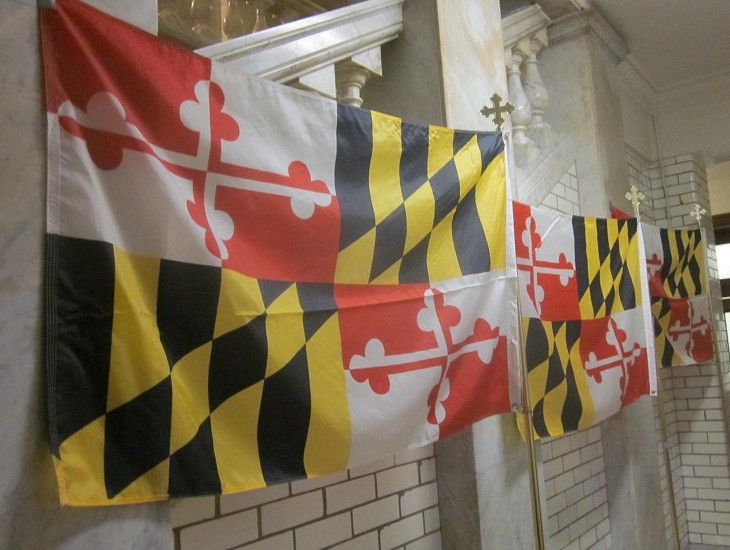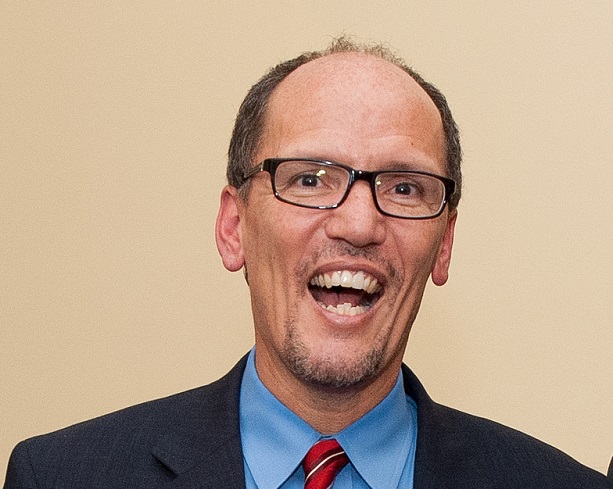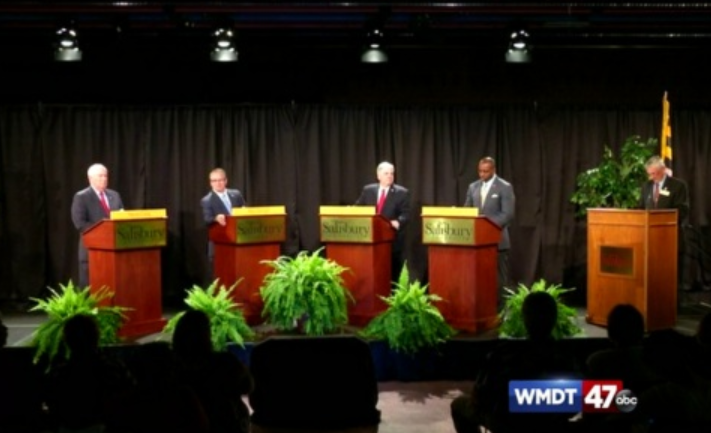By Christopher Goons
 Judge Pamila Brown saw a need for more civic education.
Judge Pamila Brown saw a need for more civic education.
A few years ago, Brown, a Howard County District Judge, attended an American Bar Association meeting where the organization discussed implementing a national civics and law program for high schoolers lacking civics education.
In 2011, the Maryland State Department of Education dropped an assessment in social studies as a graduation requirement because of funding issues. When that happened, Brown decided it was time to start a local civics and law academy to Maryland.
“I thought what a perfect opportunity,” said Brown, chair of the Maryland Judiciary Public Awareness Committee.
Last Friday, Brown and the committee she chairs brought the Civics and Law Academy back to Maryland students for the sixth time, this time from Anne Arundel County high schools. The American Bar Association provides a curriculum and resources to judges, lawyers, teachers or civic leaders who want to lead academies across the country geared toward preparing young people to be part of a democracy.
Brown said it is critical kids know what their rights and responsibilities are and how government is supposed to function.
“It’s like when you go around the world and you see emerging democracies, people are clamoring for all the rights that we have which we sort of take for granted,” said Brown.
Organizers of the academy stressed that students in any field should concentrate on finishing their post-secondary education and become productive citizens who know the law and its impact in society.
Break-out session showcases civic concerns
Students from Severna Park High School and South River High School gathered at the Judiciary Education and Conference Center and initially watched a video explaining the basics of Maryland’s Court System; and in break-out sessions, they learned about their various rights and responsibilities, and decided what they thought should be free and protected speech in the “vote with your feet” exercise.
In another exercise, students voted for the five rights in the Bill of Rights they wanted to preserve.
The right to free speech and freedom of religion came in first and second respectively.
“So that means you’re not going to be able to assemble where you want so I don’t know how you are going to have free speech if you can’t even get together and say anything,” said Brown.
She also pointed out that without the right to refuse self-incrimination, the government could tell citizens that they are required to tell anything and everything.
“You gave up jury too? So I guess you all want judges to decide your guilt or innocence,” said Brown, who then stressed the importance of the right to a jury.
Students view program in positive light
Several judges and attorneys were there to pick the students’ brains or speak at a panel, including Judge H. Richard Duden of the Anne Arundel County District Court, Judge Pamela J. White of the Baltimore City Circuit Court, and Gavin Patashnick, the Deputy Chief of Baltimore City’s State’ Attorney’s Office.
“Just to see locally how we could get involved later after law school is cool,” said Severna Park High School senior Natalie Pike.
Pike, along with two other Severna Park seniors, Justin Snyder and Sarah Kelly, are planning to go to law school. Their teacher, CORRECTION: Barbara Segnetelli Barbara Segnatelli, the February 2013 “Educator of the Month” in Anne Arundel Public Schools, said Kelly and Pike say they’re going to be U.S. Supreme Court justices.
Snyder already works in a law firm.
“I think it was informative on our constitutional rights and how they are applied now in this world other than when they drafted them when we started,” said Snyder about the academy.
Kelly, who said she’s been interested in law for a while, thought the program was a positive experience and “it just showcased how law is a dynamic body that’s constantly changing and its full of new challenges.”
“There’s no set answer for one question,” she continued.
In the past, students from Baltimore County, Prince George’s County, Cecil County, Harford County, and Frederick County have participated in the program.
But the program didn’t end when the students were awarded their certificates of completion and bags packed with constitutions and headed home. They also have the opportunity to participate in the National Civic and Law Academy, if they choose to do so.
Other co-sponsors of Friday’s event included the Maryland State Bar Association and the Citizenship LRE program.






Recent Comments